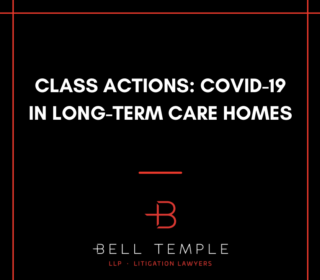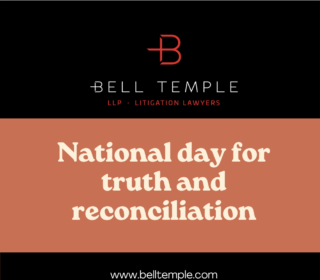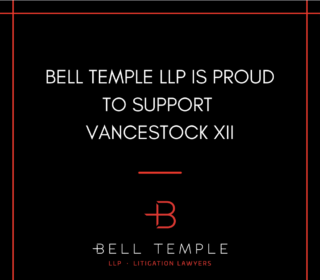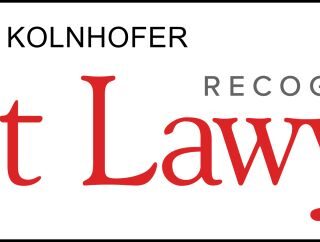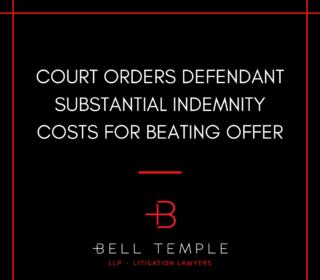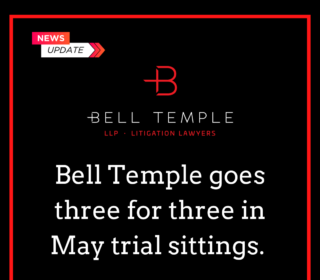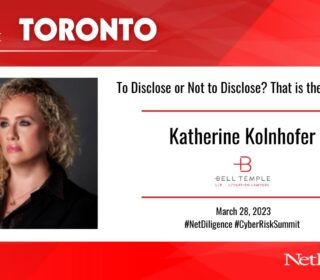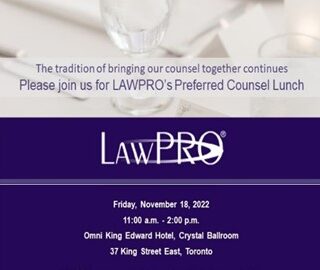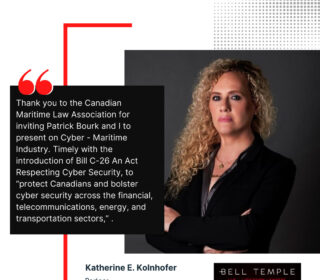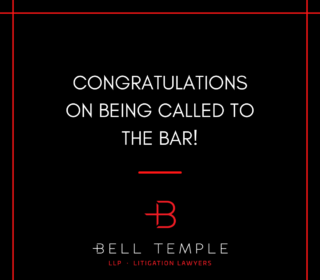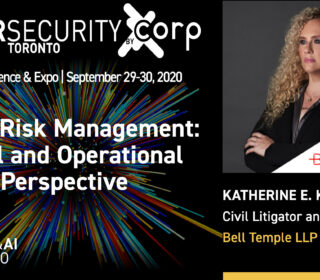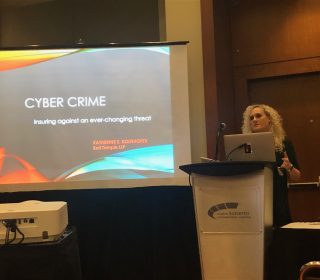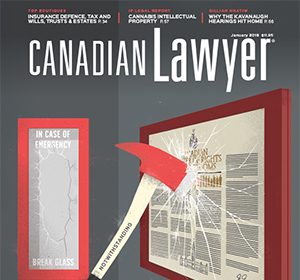In the tort action of Veneris v. Parker et. al. (ONSC Court File No. CV-19-00614403-0000), the plaintiff claims in part that he suffered increased legal fees as a result of the alleged misconduct of the defendants, who had been retained to provide advice and testimony relating to the plaintiff’s family law dispute. The defendants brought a motion for an order compelling the plaintiff to produce his matrimonial lawyer’s complete file. The plaintiff resisted the motion on the basis of solicitor-client privilege.
In his reasons for decision (released September 23, 2020), Master Graham (as he was then known) ordered the plaintiff to produce his matrimonial lawyer’s complete file, except the portions of the file over which the plaintiff claimed litigation privilege (which he nevertheless had to list in Schedule B of his Affidavit of Documents). At paragraph 26 of his reasons, Master Graham stated:
“It will be impossible for the trial court to assess the damages arising from the additional steps that he was required to take as a result of the defendants’ alleged misconduct without examining the legal advice he received from his matrimonial lawyer with respect to those steps. Further, to substantiate his damages, the plaintiff must rely on that lawyer’s evidence with respect to the fees charged for those additional steps. Trial fairness dictates that the defendants have access to the lawyer’s file so that they can test this evidence.”
The plaintiff appealed. The appeal was heard by the Honourable Mr. Justice F. Myers on February 28, 2022 who found no error with Master Graham’s decision, noting that production of the matrimonial file was necessary so that the defendants could explore the truthfulness of the plaintiff’s claim that he took steps in the family law dispute that were otherwise unnecessary or more expensive than they should have been but for the defendants’ conduct. The plaintiff had thus put in issue his state of mind in the matrimonial litigation and his reliance on the legal advice tendered therein to help formulate that state of mind. In so doing, the plaintiff had implicitly waived privilege over the legal advice related to matters in the matrimonial litigation.
Although the plaintiff raised concerns about the sensitive nature of the materials ordered to be produced, Justice Myers agreed with Master Graham that the deemed undertaking rule was sufficient protection of the plaintiff’s productions in this matter. He further noted that the plaintiff could bring a motion for a confidentiality order in relation to any specific evidence within his matrimonial lawyer’s file if it met the requisite test outlined in Sherman Estate v. Donovan 2021 SCC 25 (CanLII).


